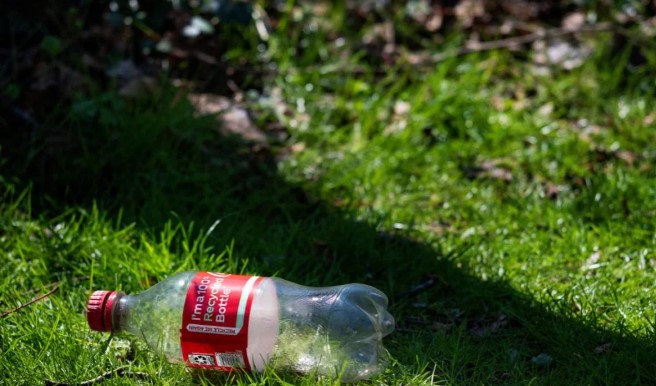We banned plastic in 2002. What happened?
This is no longer just about bottles and bags. It is about the kind of future we choose to build: A cleaner, safer, and fairer one [Publish : Dhaka tribune, 19 June 2025]

A few weeks ago, I witnessed a boy, no older than 13, standing knee-deep in a filthy canal with a stick, using his bare hands to remove a few plastic bottles. Without gloves or special tools, his sole intention was to stubbornly keep the water flowing. He was not part of any cleaning organization; he just didn’t want his street to flood again.
I didn't click any photos, but something about that felt raw. It stayed with me because it’s a daily reminder that so many people are like him, that plastic pollution is no longer just an environmental problem. It is right here, around us, and it breaks my heart a little knowing that the ones who didn't pollute pay the biggest price.
This year, World Environment Day’s theme of “Ending Plastic Pollution” was not just talking about change. The aim is to become plastic-free by 2040, with smart recycling programs, incentives, and actual limitations on single-use plastic.
Bangladesh was ahead of its time in 2002. We became the first country to ban thin plastic bags, and that in itself was revolutionary at the time. But the momentum has died. Laws were passed, but that was the end. There was a slow withdrawal from public engagement. In the meantime, plastic production and consumption kept soaring.
According to estimates by both the environmental experts and the Environment and Social Development Organization (ESDO), Bangladesh generates nearly 3,000 tons of plastic waste every day. Dhaka alone contributes 646 tons. Reports from the Department of Environment and other sources reveal that less than 40% of this waste is recycled. And most of that recycling is done by the informal sector.
The rest of the plastic clogs drains, flows through rivers and canals, and even enters the food chain as microplastics. Either in road corners or along canals, plastic waste is everywhere across the country. In coastal villages, fishers cut open fish and find bits of plastic inside.
However, this is in no way a hopeless story.
Across the country, tides of resistant movements are rising. Young entrepreneurs in Sylhet use jute to fabricate packaging alternatives. And in Jessore, people are turning discarded bottles into "eco-bricks." In Tongi, an innovation program by World Vision Bangladesh named Waste to Wealthprovides training to female volunteers and promotes transforming plastic bottles into beautiful showpieces.
These aren’t flashy movements. They don’t always get headlines. But they are real, growing, and worth something.
We need city governments to act on plastic bans, not just announce them.
We need the business sector to shift from short-term profits prioritizing convenience towards long-term responsibility.
We need recycling infrastructure that is visible and accessible and is trusted and used by the people.
Education is also part of the solution. Children need to learn from an early age how plastic takes a journey from their hands into rivers, into fields, and into food.
We have to stop ignoring the people -- our informal waste workers -- who do the dirtiest work, who are worthy of regard, training, decent pay, and formal integration into municipal waste systems.
At the global level, the UN attempts to advance a legally binding treaty on plastics. Bangladesh should not just support it; we ought to demand stronger rules on corporate accountability, on plastic neutrality, and on cross-border waste management.
We do not need to wait for international dispensation before we act. The stories, solutions, and even the spirit are here already.
What is missing is the political will to scale them up. Because at the end of the day, this is no longer just about bottles and bags. It is about the kind of future we choose to build: a cleaner, safer, and fairer one.
Plastic isn’t the root problem. It’s a symptom. The silence. The belief that someone else will deal with it. That silence is the real danger, and we can’t afford it any longer. We must act now.
Sabiha Ahmed Diba is working as Research and Grants PNS Compliance Officer at World Vision Bangladesh. She can be reached at: sabiha_diba_ahmed@wvi.org.